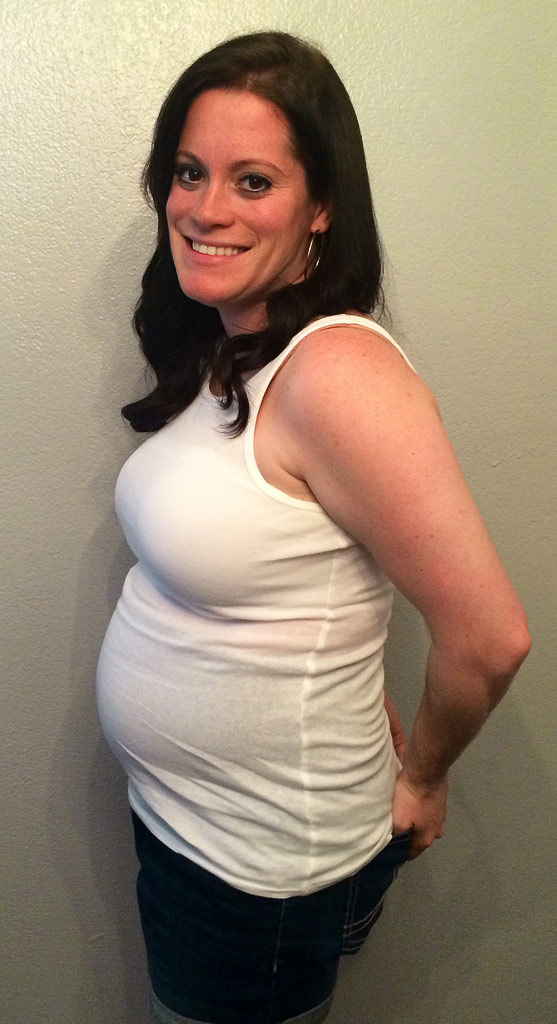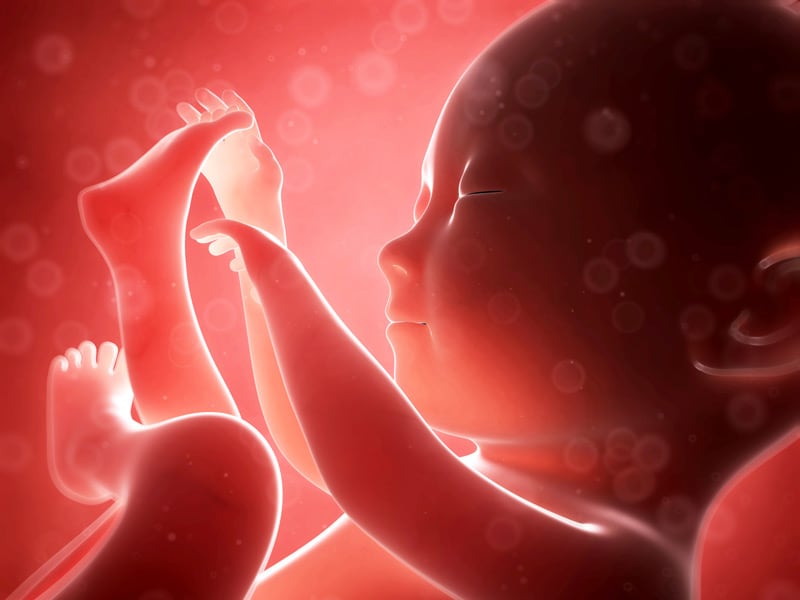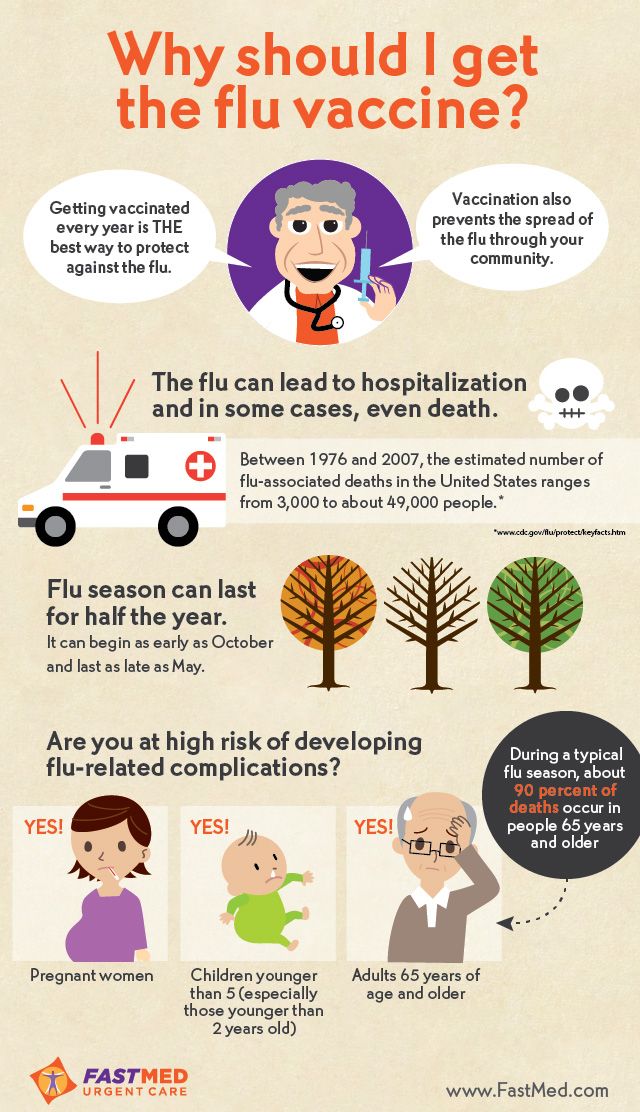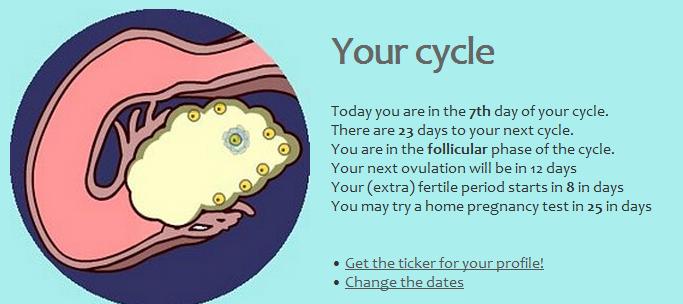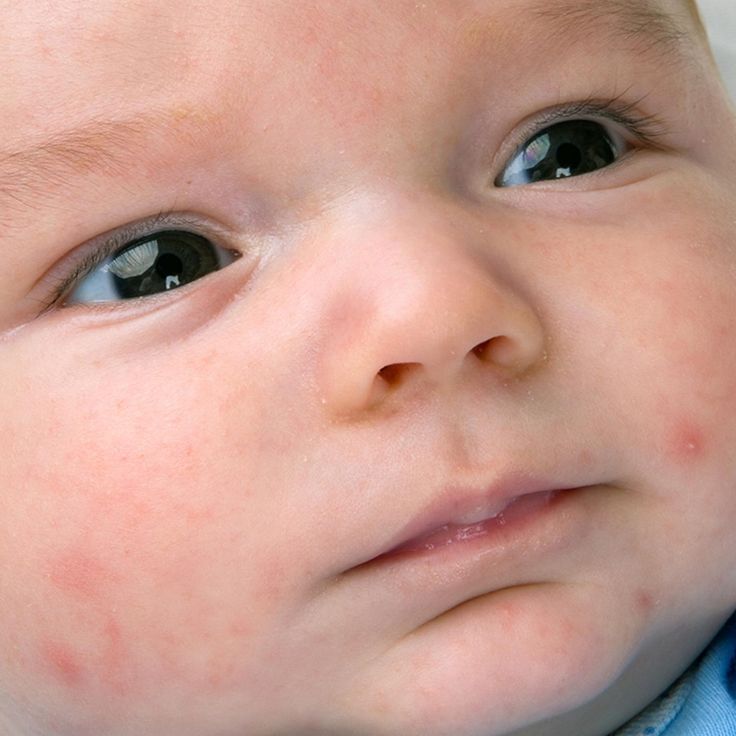Fourteen weeks pregnant
14 Weeks Pregnant | Pregnancy
When you're pregnant, you have lots of questions. Our week-by-week pregnancy guide is packed with lots of useful information. From what's happening inside your body, to how your baby is developing, and tips and advice on having a healthy pregnancy – this is your one-stop pregnancy guide!
- 1st trimester
- 2nd trimester
- 3rd trimester
Our week-by-week pregnancy guide is full of essential information. From staying fit in pregnancy to advice on your maternity rights, you'll find it all here.
- Week 13
- Week 14
- Week 15
- Week 16
- Week 17
- Week 18
- Week 19
- Week 20
- Week 21
- Week 22
- Week 23
- Week 24
- Week 25
- Week 26
- Week 27
Hopefully you are starting to feel less tired and sick now. As your energy levels return, your appetite might too. Remember, your baby does not need any extra calories at this point. Too much weight gain in pregnancy is not good for you or the baby. If you get hungry between meals try sticking to healthy snacks.
What's happening in my body?
The placenta is full of blood and pumps out nutrients, oxygen and hormones, while removing waste products such as carbon dioxide. The placenta is firmly attached to your womb and links up with your baby through the umbilical cord.
Your blood and the baby's blood come into close contact in the placenta, but they do not mix. That's because you might be different blood groups, and mixing them up could be dangerous.
Remember to talk
Relationships can come under strain when you're pregnant, due to all kinds of worries. Talk about your feelings and speak to your doctor or midwife if you feel like you're not coping. Tommy's has advice on relationships and pregnancy.
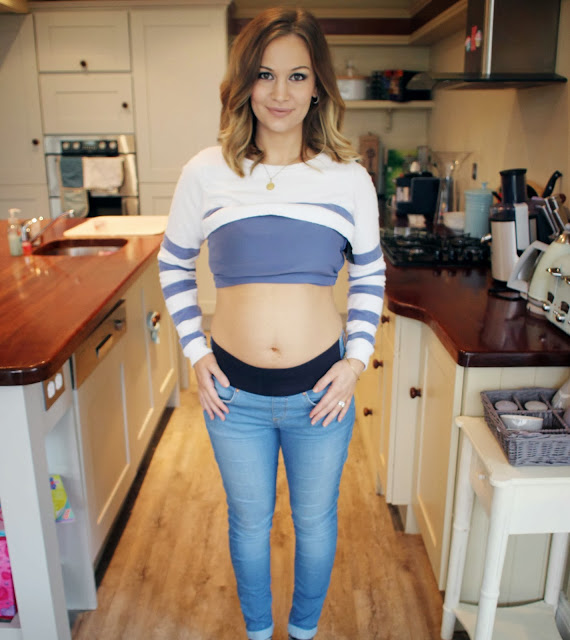
Colostrum
You may notice some yellow stains in your bra – this is probably colostrum, which is the first milk you will produce. Ask the doctor or midwife to have a look if you're worried about any changes.
2nd trimester pregnancy symptoms (at 14 weeks)
You may still be experiencing pregnancy symptoms including:
- swollen and bleeding gums (read about gum health in week 13)
- pains on the side of your belly, caused by your expanding womb (known as 'round ligament pains')
- headaches
- nosebleeds
- feeling bloated (read how to cope with bloating on week 10's page)
- constipation (read how to deal with constipation on week 16's page)
- indigestion and heartburn (read about how to treat indigestion and heartburn on week 25's page)
- sore breasts
- leg cramps
- feeling hot
- dizziness
- swollen hands and feet
- urine infections
- vaginal infections (read about vaginal infections in week 15
- darkened skin on your face or brown patches – this is known as chloasma or the 'mask of pregnancy'
- greasier, spotty skin
- thicker and shinier hair
You may also experience symptoms from earlier weeks, such as:
- morning sickness (see week 6 for morning sickness advice
- weird pregnancy cravings)
- a heightened sense of smell
- mood swings (read about dealing with mood swings on week 8's page)
- a white milky pregnancy discharge from your vagina and light spotting (seek medical advice for any bleeding)
Read Tommy's guide to common pregnancy symptoms.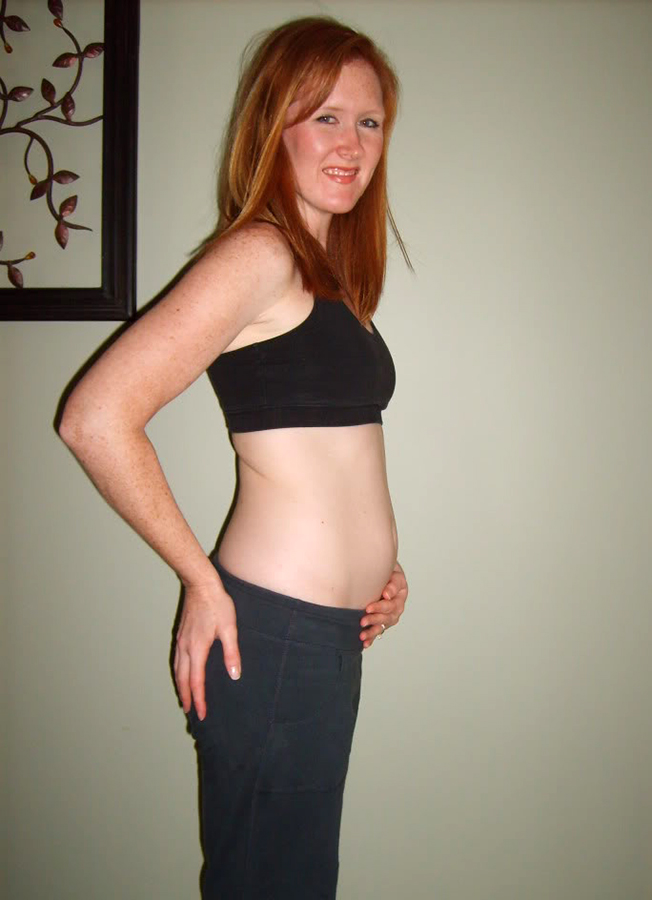
What does my baby look like?
Your baby, or foetus, is around 8.5cm long from head to bottom, which is the size of a kiwi fruit. The head is getting rounder and more in proportion with the rest of the body. Your baby is kicking around, but you probably won't feel it yet. However, your midwife might be able to hear the heartbeat, using a handheld monitor placed on your tummy.
Inside you, your baby is doing something quite miraculous – having a wee! Small amounts of the amniotic fluid are swallowed by the baby and pass into the stomach. The kidneys then kick in and the fluid is passed back out again as urine.
Action stations
Many women will tell their employer after they've had their first pregnancy scan at around 12 weeks. Once you tell your employer, you have maternity rights and can attend antenatal appointments during paid work time. You can also ask for a risk assessment of your workplace to ensure that you're working in a safe environment.
It's a good time to tone up your pelvic floor muscles.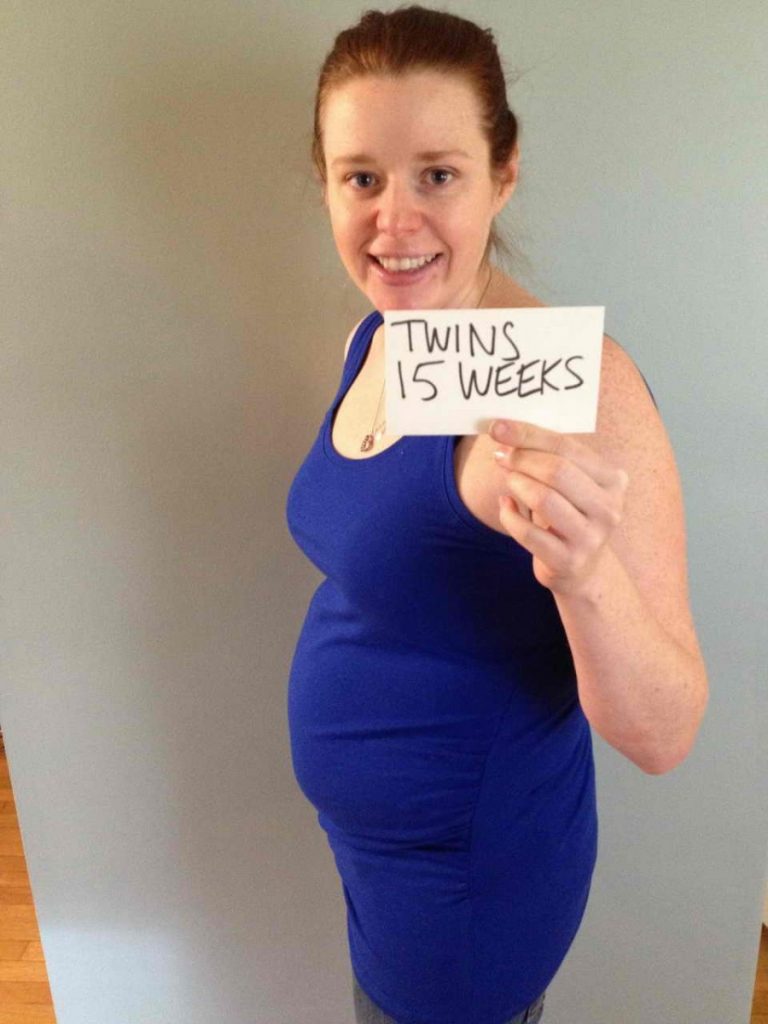 Gentle exercises can help to prevent leakage when you laugh, sneeze, cough or jump. Get the muscles going by pretending that you're having a wee and then stop the 'urine' in midflow. Visit Tommy's for more ideas about pelvic floor exercises.
Gentle exercises can help to prevent leakage when you laugh, sneeze, cough or jump. Get the muscles going by pretending that you're having a wee and then stop the 'urine' in midflow. Visit Tommy's for more ideas about pelvic floor exercises.
Ask your midwife or doctor about online antenatal classes – they may be able to recommend one. The charity Tommy's has lots of useful information on antenatal classes and preparing you for birth.
Even if you've had children before, antenatal classes are still worth going to as you can meet other parents-to-be. The NCT offers online antenatal classes with small groups of people that live locally to you.
To keep bones and muscles healthy, we need vitamin D. From late March/early April to the end of September, most people make enough vitamin D from sunlight on their skin. However, between October and early March, you should consider taking a daily vitamin D supplement because we cannot make enough from sunlight.
Some people should take a vitamin D supplement all year round, find out if this applies to you on the NHS website.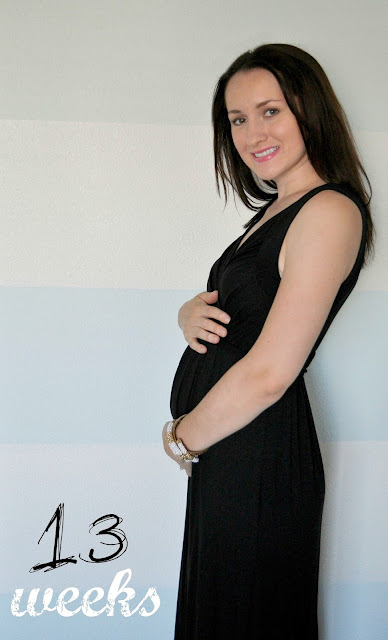 You just need 10 micrograms (it's the same for grown-ups and kids). Check if you're entitled to free vitamins.
You just need 10 micrograms (it's the same for grown-ups and kids). Check if you're entitled to free vitamins.
It's recommended that you do 150 minutes of exercise a week while pregnant. You could start off with just 10 minutes of daily exercise - perhaps take a brisk walk outside. Check out Sport England's #StayInWorkOut online exercises (scroll to the pregnancy section). Listen to your body and do what feels right for you.
There's no need to eat for 2. You don't need any extra calories until the 3rd trimester, which starts in week 28. Try to eat healthily, with plenty of fresh fruit and veg, and avoid processed, fatty and salty foods. You may be able to get free milk, fruit and veg through the Healthy Start scheme.
You and your family should follow the government and NHS guidance on coronavirus (COVID-19):
To find out about about COVID-19 and pregnancy, childbirth and breastfeeding, have a look at advice on the:
Go back to week 13
Go to week 15
Baby Development, Symptoms and Tips
Pregnancy Week by Week
- Week11
- Week12
- Week13
- Week14
- Week15
- Week16
- Week17
Advertisement
Key Takeaways at 14 Weeks Pregnant
- You’re officially in the second trimester—congratulations!
- You may start feeling better soon (think: more energy, less nausea!) as those rough first-trimester symptoms taper down.

- Your bump may start showing, and other symptoms may pop up soon. Your appetite will likely increase, and round ligament pain (some general aches and discomfort) may rear its ugly head.
Welcome to the second trimester! 14 weeks pregnant marks a lot of changes; you’re embarking on what’s known as the “honeymoon phase” of pregnancy. Starting with pregnancy week 14, the second trimester is the time to get some exercise, get some to-do’s done and have some fun. Enjoy!
Baby at Week 14
What does baby do in the womb at 14 Weeks? If you were to get a glimpse of baby at 14 weeks pregnant, you would see they’re wiggling their toes and may even be thumb-sucking! A 14-week fetus’s kidneys are making urine, and the liver and spleen are doing their jobs too. You might be surprised to learn that baby at 14 weeks is growing lanugo, a thin, peach fuzz-like hair all over, which will help keep the body warm. Don’t forget to whisper sweet nothings to your little one—baby can start to hear!
How big is baby at 14 weeks?
At 14 weeks pregnant, baby is as big as a peach, measuring 3. 4 inches and weighing in at 1.5 ounces. Baby has almost doubled in weight in the last week or so and keeps on growing at super-speed at week 14.
4 inches and weighing in at 1.5 ounces. Baby has almost doubled in weight in the last week or so and keeps on growing at super-speed at week 14.
14 week ultrasound
Typically, there isn’t a 14-week ultrasound. You likely had an ultrasound in your first trimester and won’t have one again until the anatomy scan (aka the mid-pregnancy ultrasound), which usually happens between weeks 18 and 22. The doctor will also use an ultrasound if you plan to have an amniocentesis (between weeks 15 and 20). At an ultrasound for a 14-week fetus, baby’s sex might be difficult to make out. Be patient! If you want to find out if you’re having a boy or a girl, you will likely be able to find out in just a few weeks at the anatomy scan.
3D Views: My Baby, My Body
See their progress for yourself with our 3D interactive tool.
See My Baby in 3D
See My Body in 3D
Pregnancy Symptoms at Week 14
At 14 weeks pregnant, symptoms you felt in the first trimester might be fading.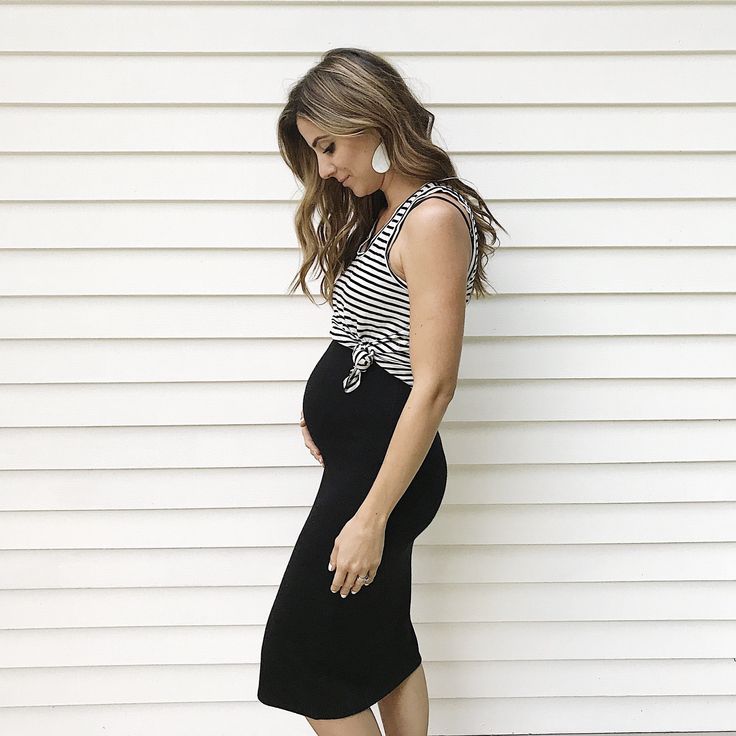 But don’t be surprised if they don’t vanish right away. Be patient and take it easy! Here are some new pregnancy symptoms you may be feeling at 14 weeks:
But don’t be surprised if they don’t vanish right away. Be patient and take it easy! Here are some new pregnancy symptoms you may be feeling at 14 weeks:
Round ligament pain
Yowch! You're probably feeling some aches and pains as your muscles and ligaments stretch to accommodate your growing baby. At 14 weeks pregnant, cramps are often because of round ligament pain, but if you have any concerns, talk to your doctor.
Increased energy
As you emerge from the nasties of the first trimester, you're probably getting your energy back. (#ThankGoodness) Keep the good feelings going with natural energy boosters.
Increased appetite
Tummy’s rumbling? Once morning sickness starts to go away, you might find your appetite in overdrive. Remember that what you eat is fueling baby’s rapid growth. You should aim to eat about 300 extra calories per day. If you’re 14 weeks pregnant with twins, you’ll want to eat about 680 extra calories per day now that you’re in your second trimester.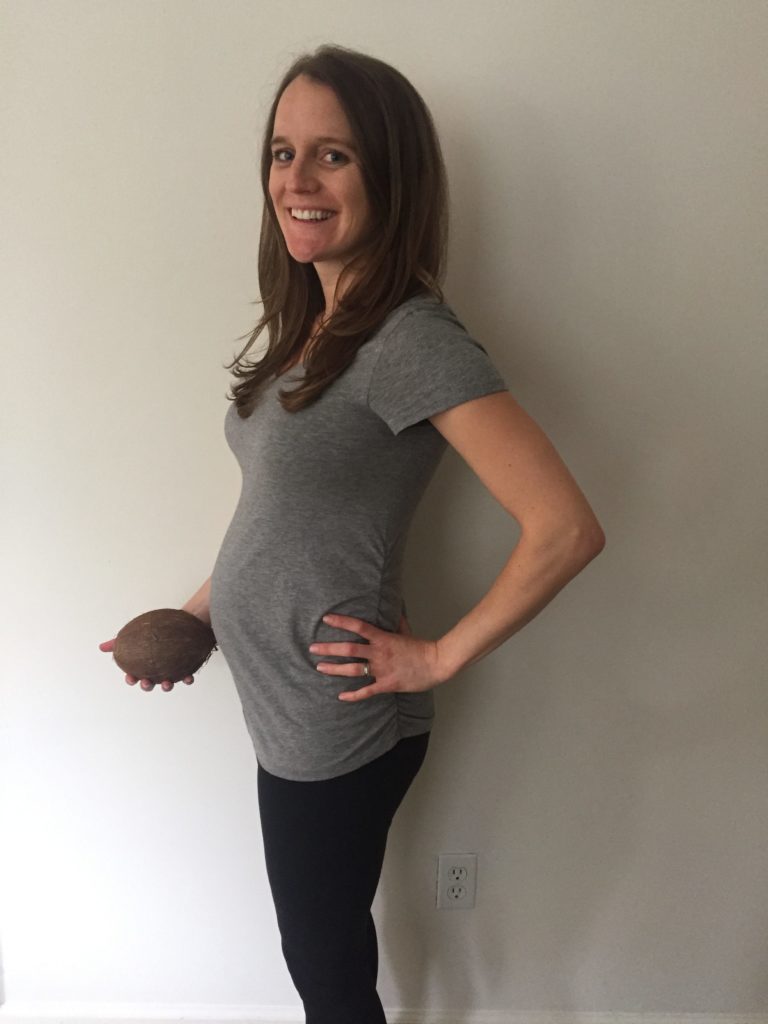 Keep plenty of healthy snacks by your side just in case you get the munchies. It’s important—for you and for baby—that you don’t indulge in too many greasy, fatty foods, so you’re both getting the right nutrients. (Of course, the occasional bowl of ice cream is totally okay.)
Keep plenty of healthy snacks by your side just in case you get the munchies. It’s important—for you and for baby—that you don’t indulge in too many greasy, fatty foods, so you’re both getting the right nutrients. (Of course, the occasional bowl of ice cream is totally okay.)
Thicker, shinier hair
You might notice your hair getting thicker and shinier, one of the (many!) attractive side effects of pregnancy.
What should I expect at 14 weeks pregnant?
Energy and appetite aren’t the only things popping. Your adorable belly bump has probably debuted by now and will continue to grow as your uterus and baby take up more room. Your breasts also continue to grow and prepare for breastfeeding. As you hit your second trimester groove, you may feel you’re starting to settle into being pregnant. Take the time to enjoy it—and get things done!
Your Pregnant Belly at 14 Weeks
Your 14-week pregnant belly might be feeling achy and sore, but that’s simply because your uterus is expanding to accommodate your rapidly growing baby. Don’t be surprised if weight gain starts to speed up at 14 weeks pregnant. If you started out at a normal BMI, doctors recommend you gain about one pound per week starting at 14 weeks pregnant. If you’re 14 weeks pregnant with twins, your weight gain goal will be about the same as singleton moms until week 20, when you should start gaining a bit more. Of course, if you started out underweight or with a high BMI—or if you lost or gained a significant amount of weight in the first trimester—your doctor might recommend a slightly different weight gain goal.
Don’t be surprised if weight gain starts to speed up at 14 weeks pregnant. If you started out at a normal BMI, doctors recommend you gain about one pound per week starting at 14 weeks pregnant. If you’re 14 weeks pregnant with twins, your weight gain goal will be about the same as singleton moms until week 20, when you should start gaining a bit more. Of course, if you started out underweight or with a high BMI—or if you lost or gained a significant amount of weight in the first trimester—your doctor might recommend a slightly different weight gain goal.
If you found yourself shying away from exercise during trimester one, now that you have your energy back, it’s time to get back on track. Consider taking a prenatal yoga class or simply get out for a walk. Exercise is great for a 14-week fetus!
Can you feel baby at 14 weeks?
Feeling baby’s first kick or roll is magical! This usually happens anytime between 16 and 22 weeks, but the timing can be different for each woman. If you’ve already had a baby, you may be able to sense movement earlier. Whenever it happens, prepare for an amazing experience!
If you’ve already had a baby, you may be able to sense movement earlier. Whenever it happens, prepare for an amazing experience!
14 weeks pregnant is how many months?
Many people think of pregnancy as lasting nine months, but it’s really 40 weeks long—which is why most doctors track your progress by week, not month. That said, 14 weeks pregnant means you have three months of pregnancy completed in the books and are at the beginning of your second trimester.
“A lot of women may start feeling better from morning sickness around this time. But if that's not you, don’t worry. Let your doctor know; you may need to take some medicine or continue taking preventative measures around this time. Also, congratulations! You passed the first trimester! You may now finally start to see evidence of your pregnancy as a little bump, given that the uterus is now out of your pelvis!” - Christine Greves, MD, an ob-gyn at the Winnie Palmer Hospital for Women & Babies in Orlando, Florida.
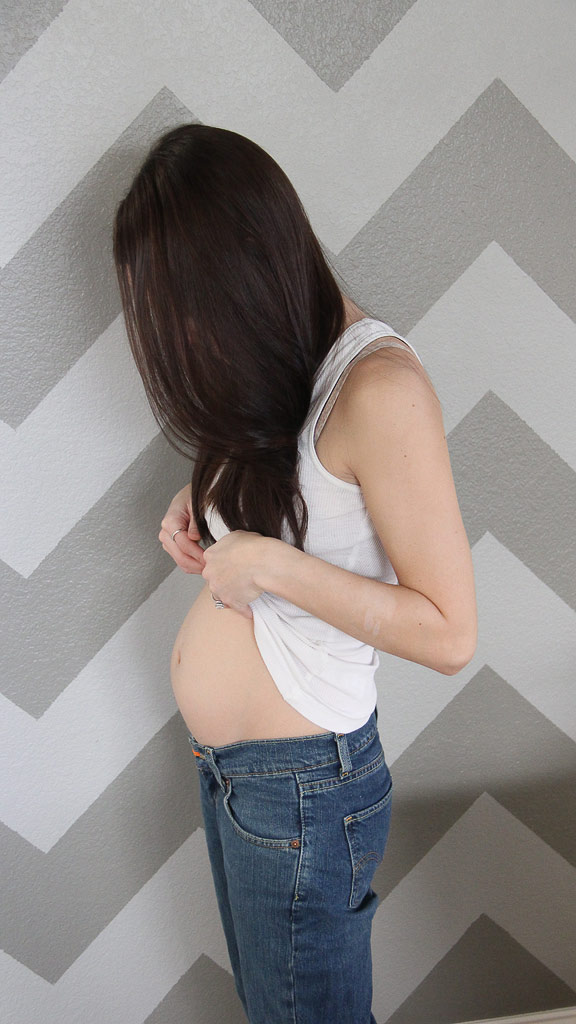
Tips for 14 Weeks Pregnant
Here’s what you can do to feel your best at 14 weeks pregnant.
Prevent sinus infections
It’s not allergies—you may be more likely to get nasal congestion while pregnant. A warm compress gently applied to your face may help, as well as moisture from humidifiers or drinking plenty of water to loosen mucus.
Cure constipation
Don’t let this common pregnancy symptom give you any trouble. Fiber-rich foods (fresh produce, whole grains), lots of water and regular exercise are all effective preventive measures against constipation.
Keep an eye on any moles
Hormones may change the appearance of any skin moles you have. It’s usually nothing to worry about, but you may want a dermatologist to check them if they become asymmetric, change color, develop an irregular border, grow larger than the size of a pencil eraser or look like they’re rising on the skin’s surface.
ADVERTISEMENT
Pregnancy Checklist at 14 Weeks Pregnant
Reminders for the week:
save article
PREVIOUS
Week 13Pregnancy
NEXT
Week 15Pregnancy
ADVERTISEMENT
Watch These Videos Next:
14th week of pregnancy what happens to the fetus
At the 14th week of pregnancy, the woman's emotional background returns to normal, hormonal storms calm down, and early toxicosis leaves her, even if it is slightly delayed.
The baby is reliably protected by the placenta, it grows, receives all the necessary elements for nutrition and develops. A woman at this time should let the child feel how much she loves him and waits for him, communicating with the baby.
How does the baby feel?
The little man continues to grow, his development does not stop for a second. His activity increases every day, not only physical, but also mimic. The collection of grimaces is replenished, the child can even smile, although unconsciously.
Interesting! The face of the baby at the 14th week of pregnancy is becoming more and more perfect, and the body is proportional. The ears are already visible, the eyes are located in their places, the neck is stretched, the chin is raised.
The child swims freely, pushes off the walls of the amniotic sac with legs and arms, turns his head, sucks his thumb. It is surrounded by amniotic fluid and a special lubricant that provides protection from injury, getting wet and hypothermia.
Changes that occur to the fetus at the 14th week:
- Height is about 16 cm, weight is about 50 g. Head circumference is 26-28 mm.
- The musculoskeletal system is rapidly developing, so the child needs a full supply of calcium, which the mother should take care of, because this is a bookmark for the skeleton, muscles and teeth.
- The surface of the body of the fetus is covered with thin short hairs - lanugo. This fluff retains the protective lubrication of the baby's body. The hairs disappear even before his birth, approximately at the 30th week of pregnancy.
- The diaphragm makes rhythmic movements in preparation for the breathing process. Learning to breathe, the fetus swallows and returns amniotic fluid
- Sweat and salivary glands begin to work.
- The intestine starts its first job - the excretion of bile.
- The development of the genitals continues, and the genitourinary system is already formed.
At the 14th week, it will not be possible to find out the sex of the baby with the help of ultrasound, but you can find out the Rh factor and blood group.
The child is sensitive to external sounds. If the mother sings to him or speaks affectionately, the baby smiles. With loud sounds, his heart starts beating faster.
How does mother feel?
Mom's tummy is already rounded so that others notice it. A woman is gaining weight, about 2-3 kg, but this process must be controlled so that weight gain is not greatly exceeded. Moms already want to feel the first push, touch the protruding leg or handle, but a lot of time will pass before this moment. Very sensitive women may still occasionally feel fetal movements, albeit very faintly.
A protruding tummy and changes in body weight are reflected in gait. This is not yet the “duck” transshipment, as in the later stages, but the characteristic heaviness is still visible. A woman on the 14th week should already buy flat shoes, comfortable and soft, so that her legs do not get tired and swollen. Especially comfortable shoes will come in handy for long walks in the fresh air.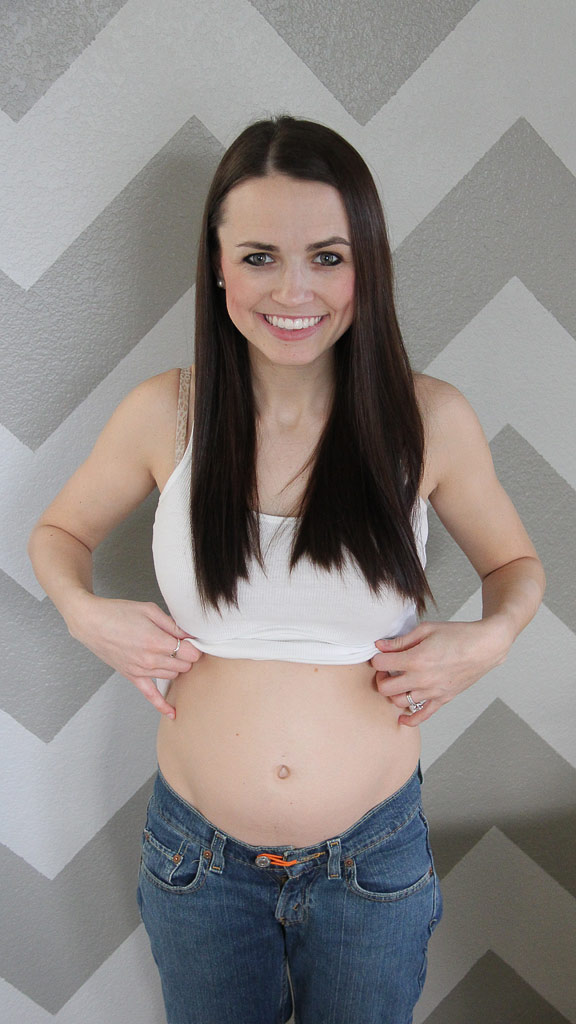
Clothing should also be comfortable. It is worth looking at things made of natural fabrics that do not restrict movement. It is also important to choose the right bra, taking into account the fact that the breast continues to fill and increase in volume, and the nipples become more sensitive.
Your emotional state is almost in order - there are no irritability and mood swings, perhaps only some psychological sensitivity will remain with you until the very birth. Exhausting toxicosis can be replaced by constipation, bloating, shortness of breath and heartburn.
Need to know! The positive thing is that the list of approved drugs is expanding by this period, so unpleasant symptoms can be dealt with. On the other hand, in order not to take risks, it is better to use home medicine recipes.
It is still important to protect yourself from respiratory diseases. Viruses and infection are no longer as scary for the baby as they used to be, but it is better to do without them.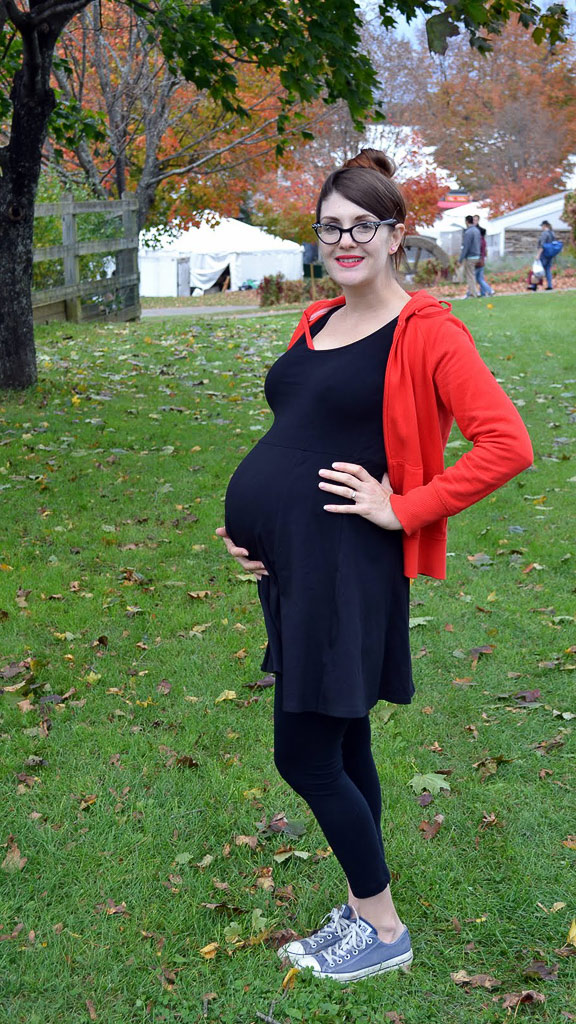 The intake of any drugs and even traditional medicine must be agreed with the attending physician.
The intake of any drugs and even traditional medicine must be agreed with the attending physician.
Tip! The 14th week of pregnancy is very important in terms of nutrition. Mom should be more careful about her diet. Your baby needs proteins to grow. For normal bowel function, you need to include sour-milk dishes in the menu. It is also important not to forget about vitamin and mineral complexes. But from products that contribute to weight gain, it is better to refuse.
14 Weeks Pregnant: Fetal Feelings, Size and Development
PreviousNext
Clench your fist - your baby is about that size now. His eyelids are fully formed, but they are still closing their eyes, and will remain so throughout the second trimester.
This is the first week of your second trimester, which many women find most comfortable. Nausea and fatigue are most likely already gone or are passing, and your weight has not yet increased enough to feel awkward and cumbersome.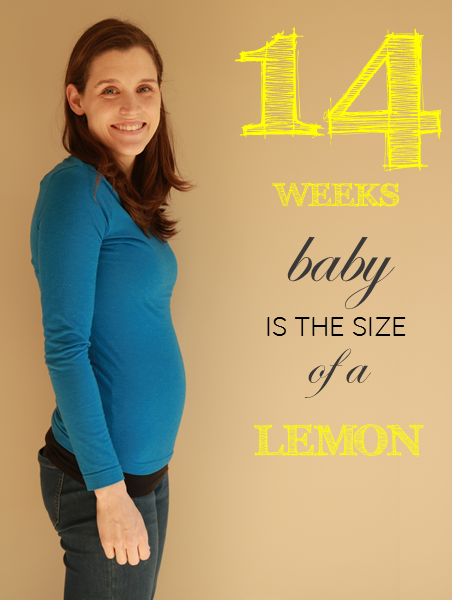
In the next few weeks, when your body begins to produce hormones responsible for well-being, you will feel a surge of energy.
On the 14th week, it's time to learn about gymnastics for pregnant women. It is important that you start doing pelvic floor exercises to help your body cope with the growing weight of the uterus. By regularly performing a set of exercises, you can avoid many potential problems.
If you can, take a pregnancy course. There you can learn and discuss a lot, laugh at each other and your problems, make new acquaintances. You may find that you get the most emotional support from your new girlfriends. Now you all experience similar feelings, and this brings you closer.
Physical changes at 14 weeks of gestation
-
Estrogen stimulates skin cells to produce darker pigment. Because of this, a butterfly mask may appear on your face, which starts on the cheeks and spreads to the nose and mouth. Sometimes this happens to women who take oral contraceptives.
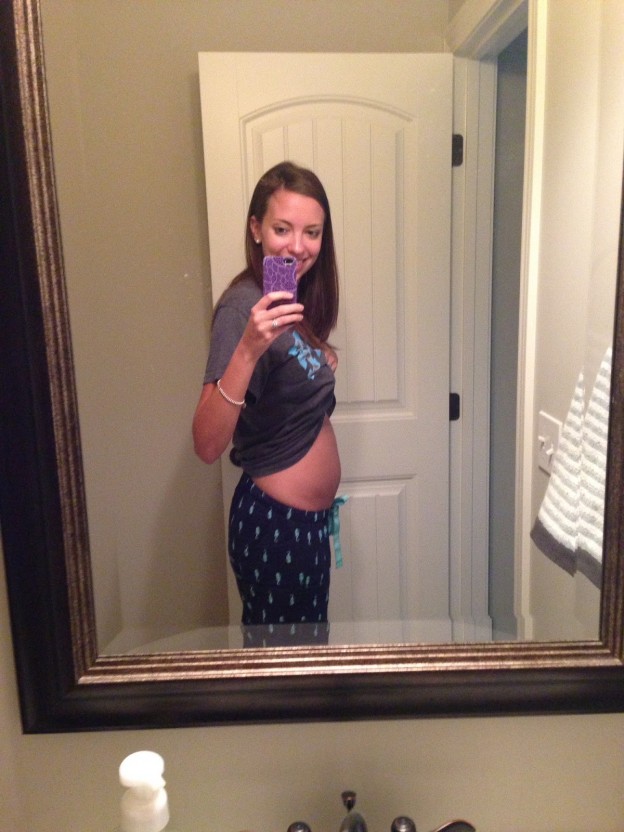
-
Are you a little hot? This is due to a significant increase in the volume of blood circulating in the body. Your heart is working hard to provide oxygen for both you and your baby. The number of red blood cells in your blood has increased significantly, so you need to get plenty of iron in your diet. Eat red meat, green leafy vegetables (spinach, kale, etc.), grains.
-
If you have a belly button piercing, it might be worth getting rid of. It does not cause any harm to the child, but as the stomach grows, it can begin to rub against clothes and cause irritation. If you want to keep the piercing from overgrowing, put the pin or ring back in every couple of days.
-
On some days, your belly may suddenly become larger. This is usually associated with increased gas production, and it is possible that after going to the toilet it will become flat again. Don't worry, it's completely normal at this stage of pregnancy.

-
If you have a retroverted uterus, i.e. she is tilted not forward, but backward, now her position should correct itself. Sometimes retroversion can cause problems with urination, in which case the woman needs to see a doctor.
Emotional changes this week
-
Your body is changing and you may be wondering if you can get back into shape after pregnancy. If you monitor the quantity and quality of food, do physical exercises, most likely your body will return to its pre-pregnancy weight. In the meantime, let it change as nature intended.
-
You may feel a little out of sorts - you have become a little forgetful and distracted. Hormones are to blame. Thoughts of pregnancy overshadow everything else, and the usual daily routine now seems insignificant to your brain.
-
You may experience severe mood swings. Just now you were close to crying, and now you are glowing with happiness.
 Pregnancy is a time of great emotional change. You and your loved ones will have to learn to live with it.
Pregnancy is a time of great emotional change. You and your loved ones will have to learn to live with it. -
Now you worry less about pregnancy, and the fear of a possible miscarriage is almost gone. When stress goes away, your mind becomes free, if only because you stop constantly thinking about numerous “what ifs”.
What happens to the baby at the fourteenth week of pregnancy
-
Your baby's eyes are still lidded tightly this week. And this is good: despite the fact that the small eyes are fully formed, they are still too sensitive to be subjected to any external influences.
-
Your baby may already have hair growing on his head.
-
The child's neck is clearly visible. The chin protrudes more and more, and the tiny ears that used to be located at the bottom of the head have taken their rightful place.
-
Your child's heart rate is about twice as high as yours.
 On an ultrasound examination, the baby's heartbeat sounds like an even, regular rhythm, and at this moment the future mother's heart also begins to beat a little faster. Periodically, the umbilical cord gets in the way of the ultrasound waves, and then the sound becomes a little muffled.
On an ultrasound examination, the baby's heartbeat sounds like an even, regular rhythm, and at this moment the future mother's heart also begins to beat a little faster. Periodically, the umbilical cord gets in the way of the ultrasound waves, and then the sound becomes a little muffled. -
The baby tries how the muscles of the face work - it may seem that he frowns or squints. It actively moves inside the uterus, but if you are pregnant for the first time, until you feel it. If you have given birth before, you may notice slight movements now, but most likely this will happen a little later - within the next couple of weeks.
-
If you have a multiple pregnancy, your tummy may be much larger than you expected. One of the first signs of bearing two or more babies is nausea and accelerated weight gain. But only an ultrasound scan can accurately confirm a multiple pregnancy.
-
When the doctor gently presses his fingers on your stomach during the examination, the baby floats to the side.

Tips 14 weeks
-
Don't forget fiber! Fruits and vegetables are very important as they help move the contents of the intestines. For fiber and roughage intake to have the expected effect, you need to drink a lot. Don't forget: if you feel thirsty, it means that your body is already partially dehydrated, so just sip on a bottle of water from time to time during the day. Also, water helps to cope with foggy consciousness. Well, at least a little.
-
It's time to pack your bags and take a little vacation. The second trimester is the best time to travel. Now you have the strength to enjoy new experiences, and there is almost no risk of preterm birth. If you are planning to travel by plane, please check your chosen airline's policies regarding flying while pregnant. You may need a doctor's note.
-
Perhaps this week you want to update your wardrobe. What to choose - special clothes for pregnant women or just clothes in a larger size? It's up to you, but many women combine both approaches.
